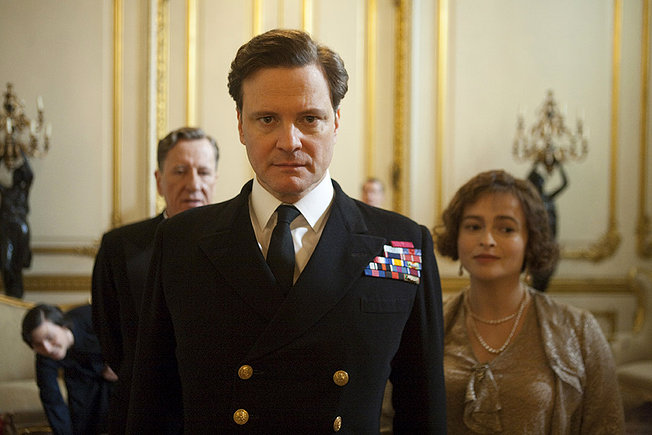The applause in the theater at the end of “The King’s Speech” could be attributed to the age of the audience, many of whom probably remember King George VI taking the throne in 1939, but that attribution would be wrong. Not applauding at the end of Tom Hopper’s masterpiece would have been the wrong way to finish the movie. From the opening credits to the final scene, the quality of the movie is never in question.
“The King’s Speech” is loosely based on the real-life relationship between King George VI (Colin Firth) and his elocutionist, Lionel Logue (Geoffrey Rush). The movie opens in 1934, when George VI is not king, but is still just Albert, the Duke of York.
Albert is a nervous man, whose crippling stutter and fear of public speaking become evident early in the film, and after a particularly unfortunate speaking debacle, Albert’s wife, Elizabeth (Helena Bonham Carter) convinces him to meet with a speech therapist, the unconventional Australian Lionel Logue.
The first meetings between Logue and Albert are comedic and somewhat shocking, and the energy between them is instantly apparent. Logue, a middle-class citizen, seems to have little regard for his patient’s status as royalty, calling him “Bertie,” and treating him like any other patient. Their early interactions feature a series of exercises that include requiring Albert to read “Hamlet” while listening to music.
Logue presses Albert almost to the brink of dissolving their relationship, but it seems to work. Albert gains confidence in his speaking abilities, and he breaks down the crippling stutter that restrained him at the beginning of the movie.
In a rapid series of events involving the death of Albert’s father, the king, and the abdication of the throne by his older brother, Albert is no longer Duke of York, but King of England.
“The King’s Speech” moves from its early comedic banter into a much more sophisticated film that transcends the story of one man searching for his voice. It is a story about the dissolving of boundaries of class and the growth of a friendship between Logue and Albert.
One of the film’s greatest successes, aside from its splendid acting, is Danny Cohen’s cinematography. Cohen’s cinematography shows that he is less concerned with the settings he is given, but is instead much more focused on showcasing the emotions of the characters. The facial close-up shot for Cohen is what the large explosion is for Michael Bay.
Perhaps the scene that best utilizes Cohen’s masterful cinematography and the superb acting skills of Rush and Firth occurs when the two men are in a small room, where George must make his wartime address to the British people. Using a series of close-ups of George and Logue, Cohen shows the strong emotional bonds that the two men have formed. It is a remarkably powerful scene in which the two men are at their most vulnerable states. In the moment after George finishes his speech, the men can only stare at each other, and, like the actors on the screen, the audience becomes so emotionally involved, it is as though they have just witnessed two friends succeed.
“The King’s Speech” is about as flawless as a film can be. It is arguably one of the strongest products of British cinema in recent years, rivaling perhaps only “The Queen.” Strong acting, a well-written script and brilliant cinematography create a film that should walk away with a king’s ransom of rewards. The lessons taught by Lionel Logue center on civility, confidence, and humility, and they are ones that need not be glossed over after the moviegoer has watched the film, but ones that must be considered well beyond the theater.
This movie is four stars out of a possible four.









